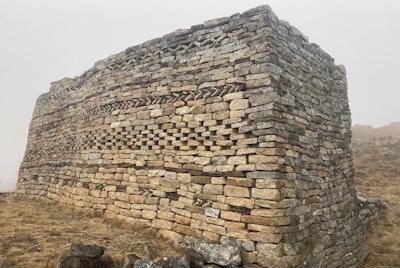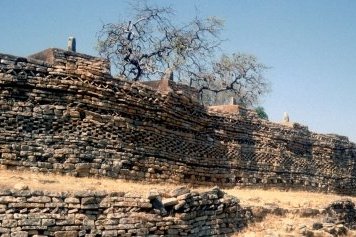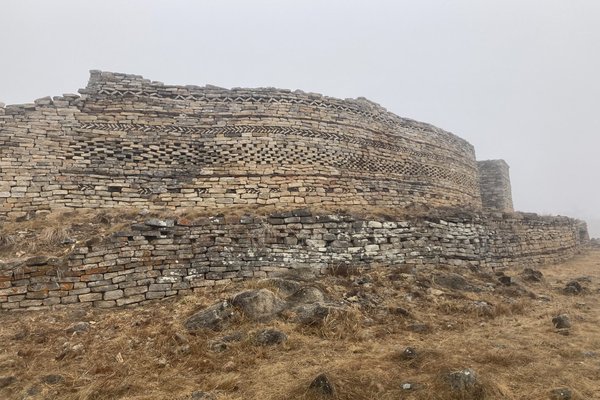Zimbabwe
Naletale Cluster of Dzimbabwes
Community Perspective: Solivagant visited in 1997 and found a site without tourists or signs. Els was happy to encounter a caretaker in 2023 as he was a great help in fixing her car after the rough access roads. See Wojtek's advice for a better access road, starting from Daisyfield.
Site Info
Official Information
- Full Name
- Naletale Cluster of Dzimbabwes (ID: 6364)
- Country
- Zimbabwe
- Status
-
On tentative list 2018
Site history
History of Naletale Cluster of Dzimbabwes
- 2025: Upstream Process
- Requested, but has not fulfilled requirements
- 2021: Preparatory Assistance
- Development of a nomination dossier
- 2018: Added to Tentative List
- Added to tentative list
- Type
- Cultural
- Criteria
Links
- UNESCO
- whc.unesco.org
All Links
UNESCO.org
- whc.unesco.org — whc.unesco.org
Community Information
- Community Category
- Archaeological site: Civilizations of Sub-Saharan Africa
Travel Information
Recent Connections
News
No news.
Community Reviews
Show full reviews
Don’t be surprised when this remote, small site pops up as a nomination in 2026 or so, because There Have Been Signs. A relatively new Tentative List entry (2018), it has been part of the Upstream Process since 2020 with the aim of getting nomination advice. The World Monuments Fund and the US Ambassadors Fund initiated restoration works in 2014. Also, Solivagant, who has a keen eye for sites like this (think of Marib!), wrote praisingly about it. So although it wasn’t on my initial itinerary I decided to make the detour between Masvingo and Bulawayo and go and see Naletale for myself. My biggest worry was whether I could make it in a non-4WD car.
The exit from the A6 is just beyond the town of Shangani, marked with a sign to the Dhlo-Dhlo and Regina ruins (which probably are part of this cluster, although not specifically named in the Tentative Site Description). What follows is a 26km long unpaved rocky road. After 2km or so I contemplated turning around, but I did not want to give up. Besides the bumpiness of the road, there’s also the worry whether you are on the right track. It is not signposted, however, it’s mostly a single track with one spot at the beginning where it forks and you have to keep left. I encountered a couple of other cars, and there also is a gate manned by a private security firm that you have to pass 9km before the end. …
Keep reading 0 comments
So there I was, updating my T List count on this Web site and, at the end, just above the “Send” button, were 2 T List sites under Z for “Zimbabwe” – including “Naletale Cluster of Dzimbabwes”. But I never knew that it was on Zimbabwe’s T List? Indeed - it was added less than a month ago on 27 Nov 2018 …….. AND we had visited way back in 1997. So impressed were we with the site, that we have since then, if discussing aspects of travelling in Zimbabwe with someone, always recommended taking it in (as well, of course, as Gt Zimbabwe itself)!
And I do so again – The T List entry states “one of the most beautiful and well decorated drystone walled sites in southern Africa. There are six decorations that have been recorded on the walls of Naletale……. Some of the decorations on this wall include chevron, herringbone, cord, checkers and the use of alternating coloured stone inserts. Naletale architecture displays high levels of craftsmanship, creativity and imagination in the drystone walling of southern Africa.”
Across 21 years I still remember them – and have managed to ferret out a digital copy of an old diapositive photo as demonstration. Note the different styles of decoration as per the above para. At the time I considered it a more impressive site than inscribed Khami. I remember too a site empty of people with no entry fees/fences etc – though, no doubt the …
Keep reading 0 comments
